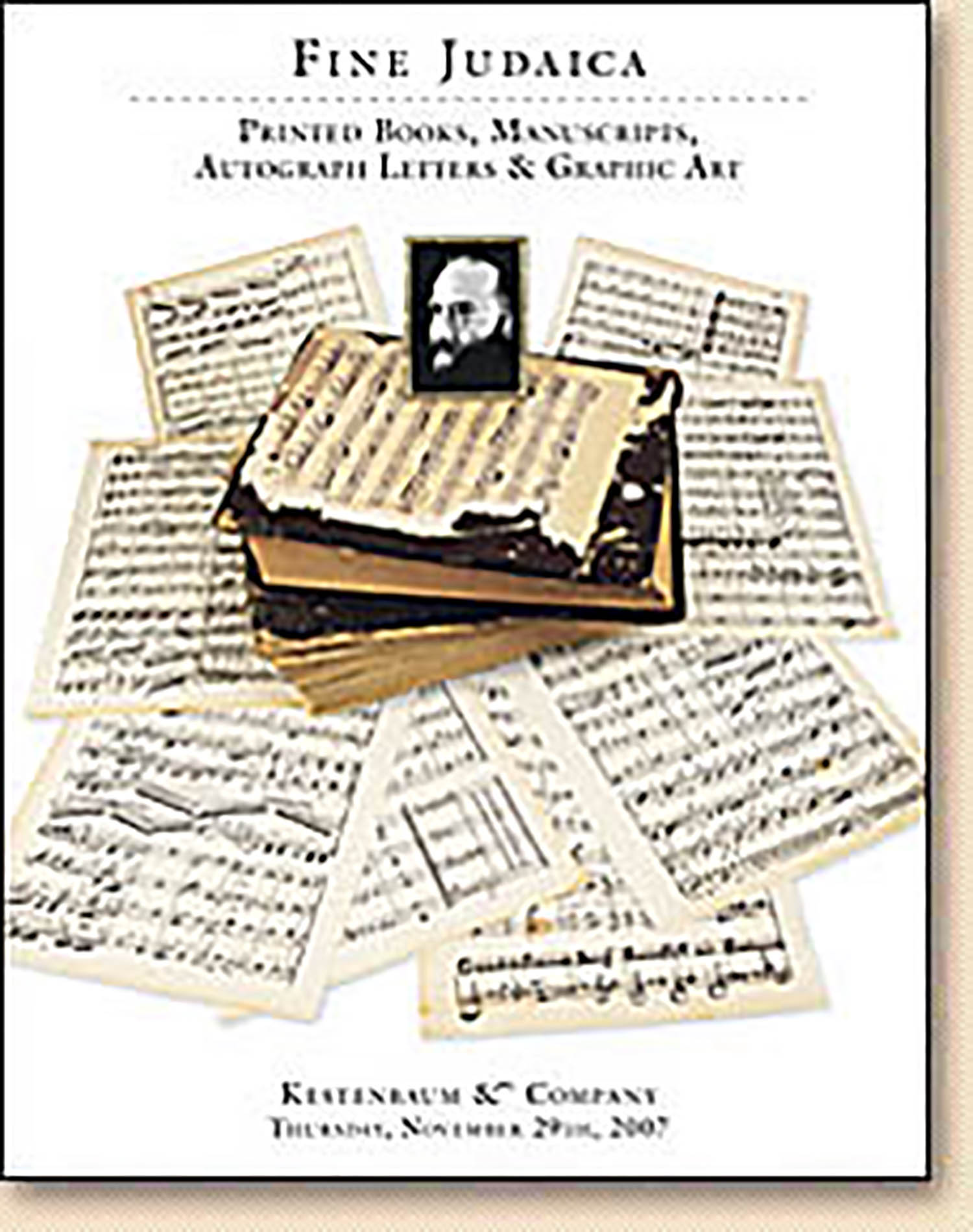Maduro, Selomoh Levy (ed.). Berith Yitzchak [prayers pertaining to Brith Milah in accordance with the Sephardic rite]

AUCTION 38 |
Thursday, November 29th,
2007 at 1:00
Fine Judaica: Printed Books, Manuscripts, Autograph Letters & Graphic Art
Lot 24
(AMERICAN JUDAICA).
Maduro, Selomoh Levy (ed.). Berith Yitzchak [prayers pertaining to Brith Milah in accordance with the Sephardic rite]
Amsterdam: Israel Mondovi for Gerard Johan Jansen 1768
Est: $20,000 - $25,000
PRICE REALIZED $20,000
IMPORTANT SEPHARDIC Circumcision Book in Period Binding Belonging to Moises de Abraham Jesurun, Mohel of the Island of Curaçao.
The Mohel, Moises de Abraham Jesurun (d. 1853) was a scion of one of the most prominent and well-to-do families of Curaçao. The institution of the mohel was far from a full-time profession. While acting as an ecclesiastical employee of the community, the Mohel was expected to offer his services gratis. Thus, Moses de Abraham Jesurun drew no salary from the Community Chest. Registers show that in the 19th century the Jesurun Family of Curaçao owned over 100 ships (Arbell, p.150). (Neither were the Jesuruns the only Jewish colonists involved in that industry. According to Jonathan I. Israel: "Curaçao became the principal hub of inter-American trade…and the Jews of Dutch America became what might fairly be described as the preeminent intermediaries and specialists in (this) trade" [Israel, p.346].) At death, Captain of the Reserve Land Force and District Chief Moses A. Jesurun bequeathed to his wife Lea as sole heir a prodigious plantation of 714 hectares with 87 horn beasts, 352 sheep, 254 goats, 48 asses and 5 bulls. Lea sold the plantation to their son Anjel Jacobo Jesurun for the sum of 52,600 florins. Little wonder then that on Rosh Hashanah 5611 [1851] the name "Moseh de Abraham Jesurun" appears as "Parnas" or lay leader of the Holy Congregation of Mikveh Israel. Chosen by the notables of the community from the affluent members among their number, the term of office was for one year. After the death of M.A. Jesurun, his widow Lea was assessed in 1863 a communal tax of 30 florins for her seat in the ladies gallery of the synagogue.
One notes with interest that Jesurun was one of those Curaçaoan Jews instrumental in establishing a Jewish "beach-head" so to speak in the mainland city of Caracas. He acted as treasurer of the Jewish Cemetery Fund for the purpose of building a Jewish cemetery in Caracas. For various reasons the project never got off the ground. Jesurun's son Anjel J. Jesurun published in Caracas in 1845 a small work of religious and moral instruction in Spanish.
In general, it may be said that what was unique to the Curaçaoan Jewish community was its combination of material success - as expressed in the cultivation of plantations as well as in the shipping industry - together with a sincere adherence to Jewish tradition.
See I.S. and S.A. Emmanuel, History of the Jews of the Netherlands Antilles (1970), pp. 342, 450, 456, 803, 825, 1082; M. Arbell, The Jewish Nation of the Caribbean: The Spanish-Portuguese Jewish Settlements in the Caribbean (2002), pp. 149-150; J.I. Israel, "The Jews of Dutch America" in: P. Bernardini and N. Fiering eds., The Jews and the Expansion of Europe to the West (2001), pp. 336-349; W. Klooster, "The Jews in Suriname and Curaçao" in Bernardini and Fiering, pp. 350-368
